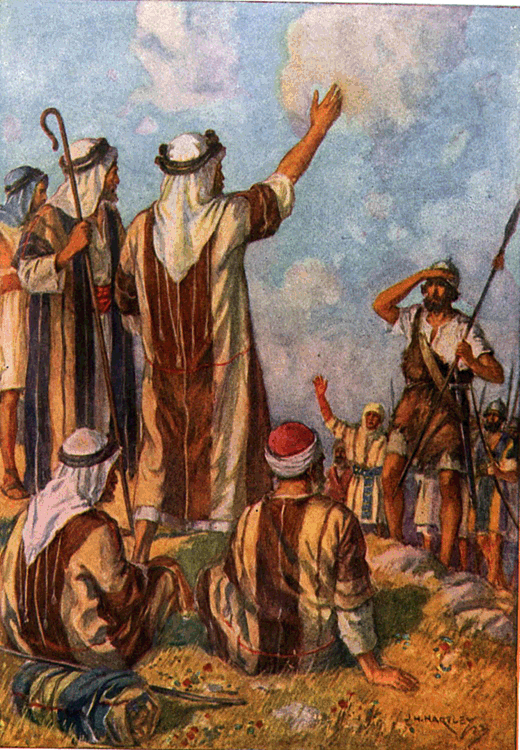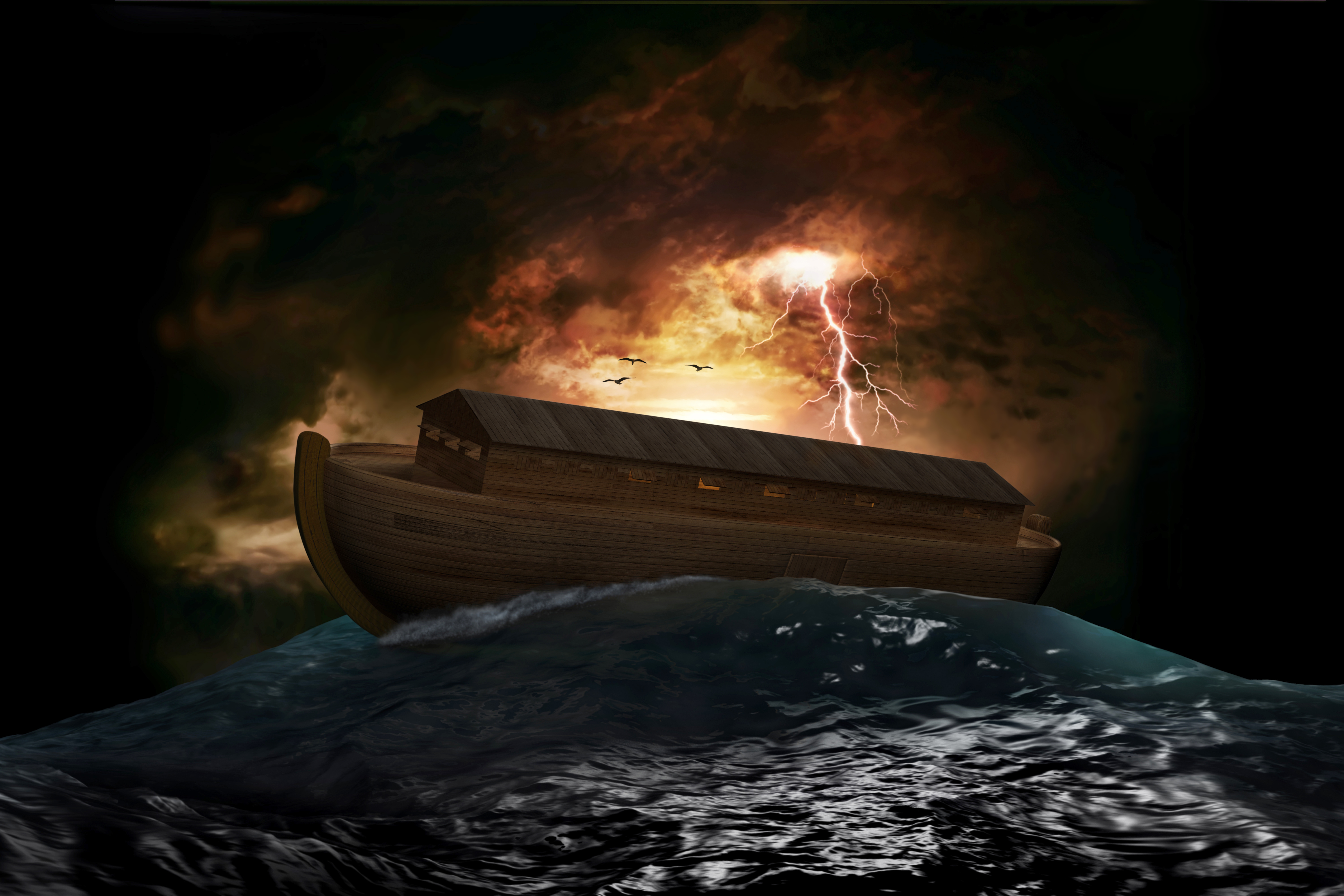Tag Archives: End Times
What Is Jacob’s Trouble and What Are the End-Times Prophetic Implications?
Genesis 32 is the story of Jacob’s return to Canaan after having been exiled from his homeland for 20 years. His exile occurred after he obtained his divinely promised birthright through shrewd if not unscrupulous means from his brother Esau resulting in his having to flee Canaan for fear of his life due to Esau’s vengeance. Jacob found refuge in the region of Babylonia at his Uncle Laban’s home where he married Laban’s two daughters, Leah and Rachel. Eventually, Jacob had to flee Babylon with Laban in angry pursuit. As Jacob and his family are returning to Canann, they encounter Jacob’s brother Esau who, along with his small army, physically stood in Jacob’s way from entering the land of his promised inheritance and wanted to kill Jacob.
This account is not only the story of Jacob’s personal, spiritual struggles, but it also has end times prophetic implications relating to the regathering out of exile of the twelve tribes of Israel (the Jews and the Christians) and their return to their Promised Land in Israel under Yeshua their Messiah at his second coming. The Scriptures refer to this as Jacob’s Trouble (see Jer 30:7).
The Jewish sages believe that the encounter between Jacob and Esau (no doubt informed by Jeremiah’s prophecy) is prophetic in nature and will happen again in the end times, but this time on a much larger scale and this time involving the numerous descendants of Israel and Esau. The end-times Continue reading
Insights from Matthew 24—the Olivette Prophecy
Matthew 24:29, 31, Immediately after the tribulation…gather the elect. If no other verse disproves the pre-trib rapture theory, this one does. Here Yeshua clearly states that the gathering of the saints to meet Yeshua as he is coming in the clouds occurs not only after the tribulation, but after the great tribulation (v. 21). The tribulation and great tribulation are separate events from the wrath of Elohim, which John describes as being part of the seven trumpet and seven bowl judgments (Rev 6:17; 11:18; 15:1; 16:1).
Matthew 24:29, 30, Sun will be darkened…sign of the Son of Man. Here Yeshua tells us that certain harbingers of his second coming will occur first. These include phenomenon occurring in the heavens involving the sun, moon and the stars. After this, a miraculous sign in the heavens will occur, and then Yeshua will come. Between the signs of the sun, moon and stars and the final miraculous sign of his coming there’s a gap in time. Yeshua later revealed to John the cosmic disturbances involving the sun, moon and stars would correspond with the sixth seal (as part of the of the great tribulation that occurs before Elohim pours out his wrath on the earth) of Revelation 6:12–17. After this, Elohim pours out his wrath upon the earth (Rev 6:17; 11:18; 15:1; 16:1), and then the second advent of Yeshua occurs.
Does the sign of the Son of Man coming (Matt 24:30lp) occur before or after the wrath of Elohim? That’s hard to say, but since Yeshua states that between the two events that all men will mourn, perhaps this is a veiled reference to the wrath of Elohim that is to be poured out on unregenerate men during the seven trumpets, seven thunders and seven bowl judgments described in the Book of Revelation. Why else would men be mourning? The intervening time between the Continue reading
Noah and the Flood from a Allegorical and Prophetic Perspective
Genesis 6–8, Noah’s flood provides allegorical insights relating to end-times prophecy. In Matthew 24:37, Yeshua compares the end times to the days of Noah. The story of Noah has allegorical implications that give hints about end-times prophecy.
In 1 Peter 3:18–22, we learn that the story of Noah is also a picture of salvation and water baptism. Noah is a prophetic type of Yeshua.
To start with, Noah building the ark is a prophetic picture of the redeemed believer working out his own salvation (Phil 2:12), yet while doing so according to YHVH’s exact plans or specifications (e.g., repentance from sin, faith in Yeshua, baptism for the remission of sins, and faithful obedience to YHVH’s commandments).
Noah builds an ark of safety from Elohim’s wrath or judgments against sinful man. The ark is a metaphorical picture of the believer’s salvation, and Noah is a spiritual picture of Yeshua. The flood is also a picture of water baptism for the remission of sins, which ceremonially pictures the death of the old sinful man, and the birth of the new spiritual man (Rom 6:3–6). Unregenerated sinful or carnal men perished in the floodwaters in Noah’s day, while the new, redeemed man (as pictured by Noah and his family) who had found grace in the sight of Continue reading
Video: The Eight Stages of Exiting Spiritual Babylon
What Is the Day of YHVH’s Wrath?
The Day of YHVH’s Wrath
There comes a time in the chronology of end times events that accompany the return of Yeshua when YHVH will pour out his wrath upon rebellious men. The Bible refers to this as “the day of YHVH” or “the day of his wrath” — a phrase which occurs more than two dozen times in prophetic writings of Isaiah, Ezekiel, Joel, Amos, Obadiah, Zephaniah, Zechariah and Malachi. What is this day?
Is the “day of YHVH’s wrath” a literal day, or a time period, since the Hebrew word for day (Heb. yom) can mean both? The prophet Isaiah may give us a clue. In several places, he mentions “the day of YHVH’s vengeance” (or words to this effect). This is the time period when YHVH will judge the nations including Babylon the Great, which is in existence at Yeshua’s second coming (see Rev 17, 18 and 19). In three places, Isaiah indicates that the day of YHVH will last for one year (Isa 34:8; 61:2 and 63:4). Interestingly, in Isaiah 63:4, the prophet couples the idea of the day of YHVH’s vengeance being a year long with the jubilee year — “the year of my redeemed has come.” This occurs as the Messiah (the subject of Isa 63:1–6) judges the enemies of Israel (notably Edom) as he is at the same time about to redeem (i.e., regather and return scattered Israel to its Promised Land inheritance.) It appears that while Yeshua is judging Israel’s enemies at his second coming, he will at the same time begin regathering the lost and scattered 12 tribes of Israel in a major way. Yeshua seems to allude to this in Matthew 24:31
What Is the Wrath of YHVH/Elohim?
In the Book of Revelation, the term wrath of God/Elohim or similar language is found ten times in reference to YHVH’s fierce judgments against unrepentant and rebellious sinners. It is my belief that these judgments are yet to occur and are connected with the end times Continue reading
We’re in an End Times Spiritual Famine
Many people hear the word of Elohim, but few do the word of Elohim. There is a big difference between the two. In Hebraic thought, if you don’t do it, you didn’t really hear it!
Amos 8:11, A famine…of hearing. Hearing is the Hebrew word shema, which has the compound meaning of both hearing and doing. In our modern world, the word of Elohim is more proliferated than ever before, especially with the advent of the internet. Many people have access to Elohim’s word and hear it, but very few actually do it. There are many people who are religiously active following the traditions and doctrines of men, but very few who actually read, study and then actually bring their lives into conformity with the actual word of Elohim. To do so is the biblical definition of hearing.
Amos 8:12, Run to and fro. Not only is there a famine “of hearing the words” of YHVH, but the prophetic word of Elohim is also scarce, and people are running to and fro seeking it.
Earlier in the Book of Amos, YHVH promises to do nothing except that he reveals it first to his servants the prophets (Amos 3:7). The prophet throughout his little book rebukes the people of his day for their greed, idolatry, injustice, pride and their refusal to repent of their errant spiritual ways. Perhaps it was because of Israel’s state of spiritual apostasy that prophets were so scarce in that day, which is why people were having to run to and fro over long distances seeking a true prophetic word from Elohim.
We read in Proverbs that without a prophetic vision from Elohim that is based on a solid foundation of Torah, YHVH’s people perish or become spiritual unloosened or unrestrained (Prov 29:18). There are plenty of carnal or profane prophets in the modern church who prophesy out of the dictates of their own hearts without any understanding of the Torah and do little good for the spiritual well-being of YHVH’s people (see Jer 23; Isa 28; Ezek 13; 28).
In addition to that, when a true prophet would speak, Amos complained that the people hated hearing such a prophet (Amos 5:10). The same is true today. People are people. Why should YHVH send one of his prophets to such people? The people won’t hear him anyway.
It’s ironic how YHVH’s people have this strong yearning to hear a prophetic word from YHVH (probably because of the human yearning to divine the future), but when he sends one of his true prophets to deliver it, the people refuse to hear it (because with future predictions of YHVH’s prophets comes the message of repenting of sin,which people don’t want to hear).
Ezekiel noted this proclivity of YHVH’s people and complained about the problem (Ezek 33:30–33). The people want to hear the prophet’s words, but they don’t want to obey the word of YHVH because it goes against their carnal desires (Ezek 33:31). Ezekiel goes on to predict that eventually, though each generation tends to reject the prophets YHVH sends to them, once the prophets are dead, subsequent generations would recognize them as true prophets (Ezek 33:33).
Indeed this was the case, for later generations of Jews accepted those rejected prophets as divinely sent and put their writings into the canon of Scripture. Yeshua noted this phenomenon in the Gospels (Luke 112:46–51 cp. Matt 23:31–36). That generation now accepted the prophets of old that their forefathers had rejected, but following in the same path as their forefathers,and in their own day, they rejected Yeshua — the greatest Prophet of all.






